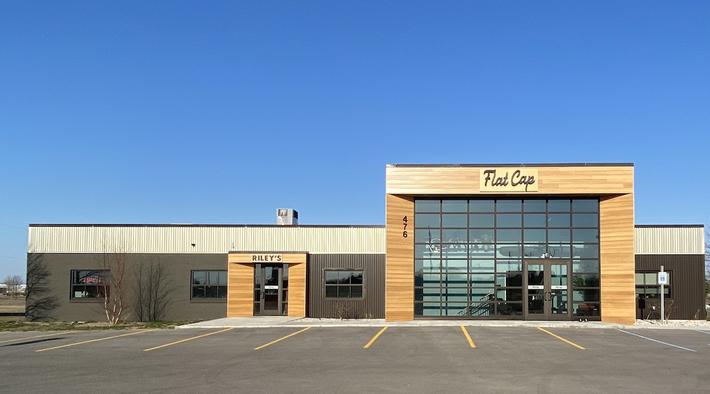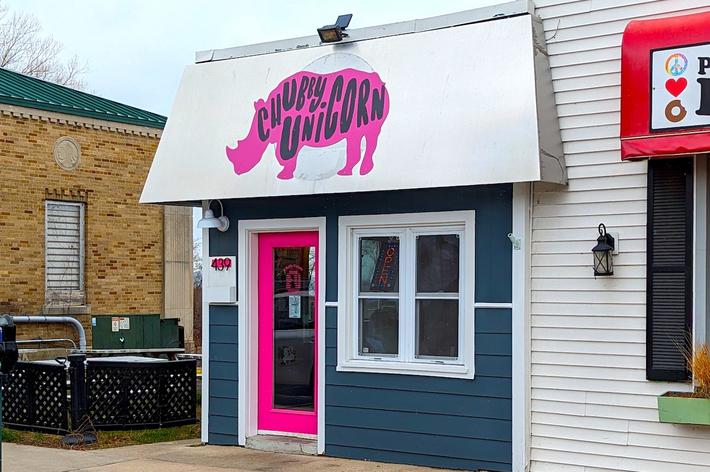A sad state of affairs
May 1, 2011
A Sad State of AffairsOur states are in a sad financial state.
At least 44 are in the red and are either in the midst of, or have already
completed, unpleasant budget debates. Collectively, those states have
deficits of somewhere around $125-$150 billion, depending on whose numbers
you believe.
They are, without exception, required by their state constitutions to
balance their budgets. Much cutting and slashing is in our immediate
futures.
They blame all of this on a recession they claim they couldn’t predict and
a federal government run amok.
States got to this point not because they were blindsided by forces they
could not anticipate but because they went on a two-decade spending and
tax-cutting binge. And it wasn’t just legislators doing the spending and
cutting.
Most of the ’90s were economic boom times. The tech bubble was growing,
the federal government was actually in the process of balancing its
budget, jobs were plentiful and revenues were pouring into the states.
They spent wildly and cut foolishly. Some people said the stock markets
were so strong the upward surge would never end.
Of course, it did end, The tech bubble burst, the market suffered through
a painful correction and state budgets took a hit. As we eased out of the
tech bubble crash and right into the housing bubble, state governments
were undeterred by their recent struggles. Revenues exploded again and
state legislators, and in many cases voters, just kept right on spending
and lowering tax rates.
Many of the same folks who assured us the markets would never stall were
now assuring us the value of our homes would just keep increasing forever.
They were wrong. Again.
The housing bubble didn’t just burst, it exploded violently, taking big
chunks of the banking industry and Wall Street with it. The American auto
industry, crippled by lagging sales and crushing debt, didn’t need much of
a shove to fall into the financial abyss.
States found themselves with rapidly shrinking revenues, smaller tax rates
and huge spending obligations. They splashed into red ink, one after the
other, until nearly all were fully crimson.
States tried budget gimmicks of all sorts, made cuts, increased some fees
and closed some loopholes. Through 2009, 34 states had tried some kind of
tax or fee increase to help close their budget gaps. Still, the deficits
persisted as revenues stagnated at much lower than anticipated levels
while spending obligations continued to increase.
At least some states became downright creative in their budget balancing
attempts. In Arizona, they actually sold several state buildings,
including the capitol building, the House and Senate buildings and the
Executive Tower that includes the governor’s office. I’m not kidding. They
now lease those buildings.
After the 2010 elections there were 29 Republican governors. Those newly
elected nearly all ran promising tax cuts to at least some segment of
their corporate and business communities. They are classic supply-siders,
adherents of the still unproven notion that giving the business community
more and more tax breaks will generate business expansion, create new jobs
and we will all live happily ever after.
Unfortunately, if you already have a deficit and then give large tax
breaks to any constituency, revenues decrease and the deficits increase,
at least in the short term. Here in Michigan, our $1.6 billion deficit
will be effectively increased to $3.4 billion if Governor Snyder’s tax
breaks to business are enacted as is expected.
State after state are effectively increasing their budget woes by offering
a potpourri of tax breaks for businesses and higher income earners.
That gap has to be filled somehow. According to the Center for Budget and
Policy Priorities, a non-partisan research group, the typical state spends
most of their money on K-12 public education, higher education, and
healthcare through a Medicaid program. Since that’s where the most money
is spent, those are the richest targets for the budget-cutters.
The human collateral damage is to schoolchildren, seniors, low income
earners and sick people. But even the budgetary bloodletting proposed for
healthcare programs and schools is not enough to balance some state
budgets. The euphemistic “revenue enhancers” have followed in many states
but the targets have changed.
Michigan has decided to make up the bulk of our shortfall by taxing the
pensions of retirees and taking away tax credits from lower income
families. More than a dozen states have appealed to Health and Human
Services for permission to drop hundreds of thousands from their Medicaid
rolls. The operative language for this in the Republican playbook is
“shared sacrifice.”
There is a legitimate argument to be made, especially here in Michigan,
that businesses deserve to keep more of their hard-earned money. There are
ways to accomplish that without crippling tax structures and the constant
diminution of actual tax rates. Tax credits and rebates both serve to
provide more money for Michigan businesses and protect a revenue stream
when times get tough again.
If state government was a bloated behemoth a decade ago, it has certainly
been cut down to size now. Surely we’ve already cut public education
enough. And balancing the budget on the backs of the poor, the sick and
retirees is anathema to what we’ve always believed in as a society.
Taking from those who have the least and giving it to those who have the
most is bad enough. Telling them they haven’t sufficiently sacrificed is
offensive. There has to be another way.
Trending

Springtime Jazz with NMC
Award-winning vibraphonist Jim Cooper has been playing the vibraphone for over 45 years and has performed with jazz artist... Read More >>
Dark Skies and Bright Stars
You may know Emmet County is home to Headlands International Dark Sky Park, where uninterrupted Lake Michigan shoreline is... Read More >>
Community Impact Market
No need to drive through the orange barrels this weekend: Many of your favorite businesses from Traverse City’s majo... Read More >>


